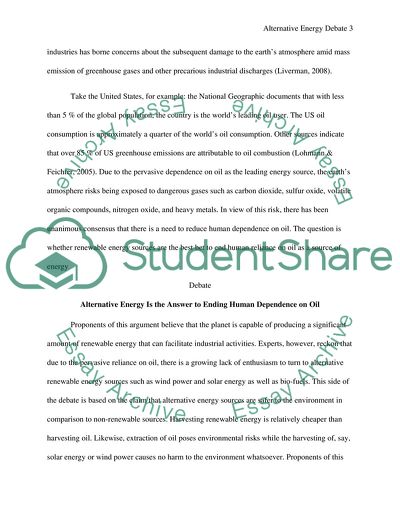Cite this document
(Are Alternative Energy Sources the Answer to Ending Human Dependence Research Paper - 3, n.d.)
Are Alternative Energy Sources the Answer to Ending Human Dependence Research Paper - 3. https://studentshare.org/environmental-studies/1785523-are-alternative-energy-sources-the-answer-to-ending-human-dependence-on-oil
Are Alternative Energy Sources the Answer to Ending Human Dependence Research Paper - 3. https://studentshare.org/environmental-studies/1785523-are-alternative-energy-sources-the-answer-to-ending-human-dependence-on-oil
(Are Alternative Energy Sources the Answer to Ending Human Dependence Research Paper - 3)
Are Alternative Energy Sources the Answer to Ending Human Dependence Research Paper - 3. https://studentshare.org/environmental-studies/1785523-are-alternative-energy-sources-the-answer-to-ending-human-dependence-on-oil.
Are Alternative Energy Sources the Answer to Ending Human Dependence Research Paper - 3. https://studentshare.org/environmental-studies/1785523-are-alternative-energy-sources-the-answer-to-ending-human-dependence-on-oil.
“Are Alternative Energy Sources the Answer to Ending Human Dependence Research Paper - 3”. https://studentshare.org/environmental-studies/1785523-are-alternative-energy-sources-the-answer-to-ending-human-dependence-on-oil.


